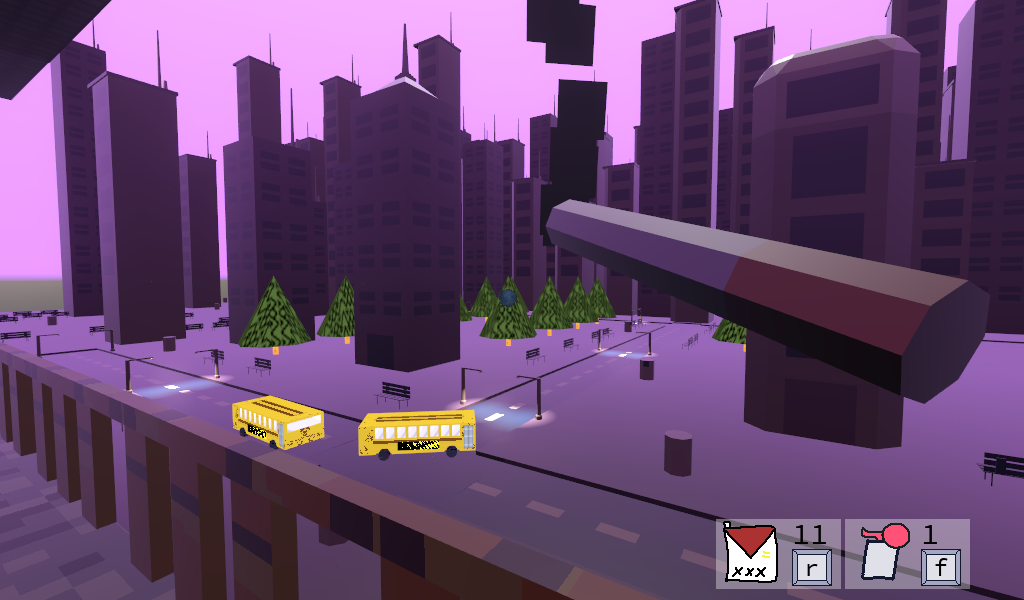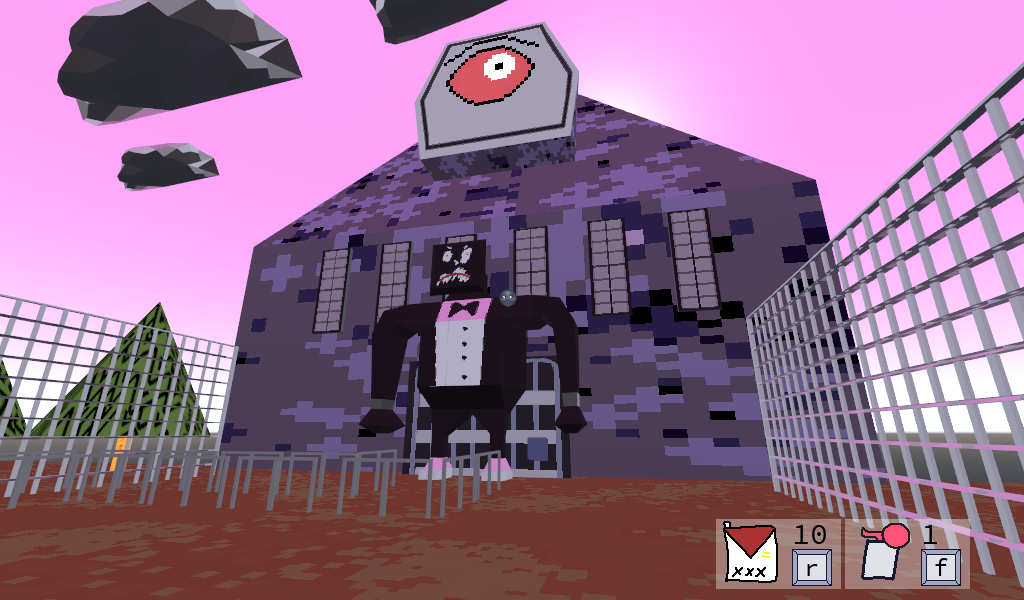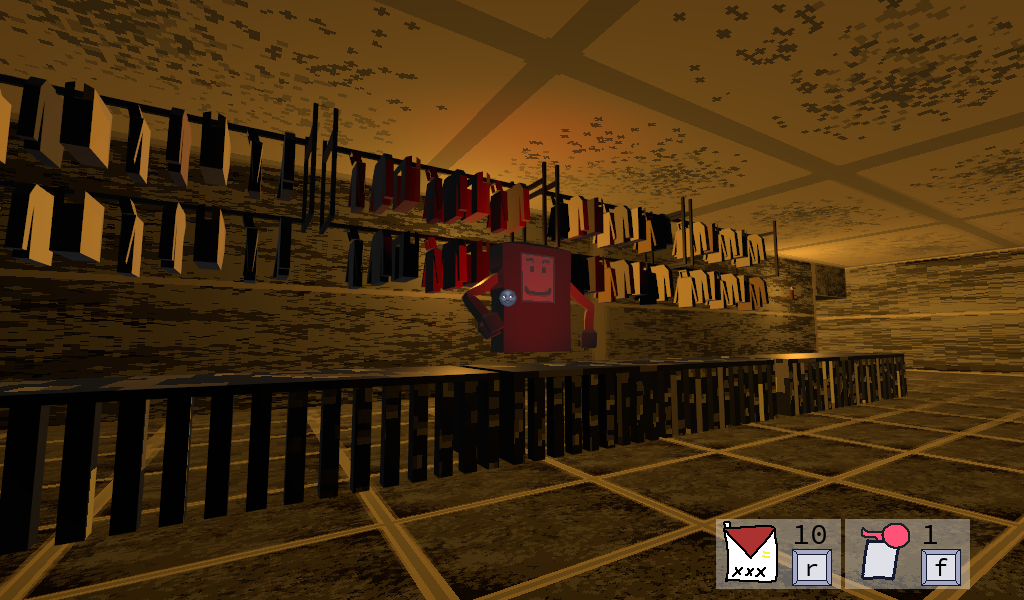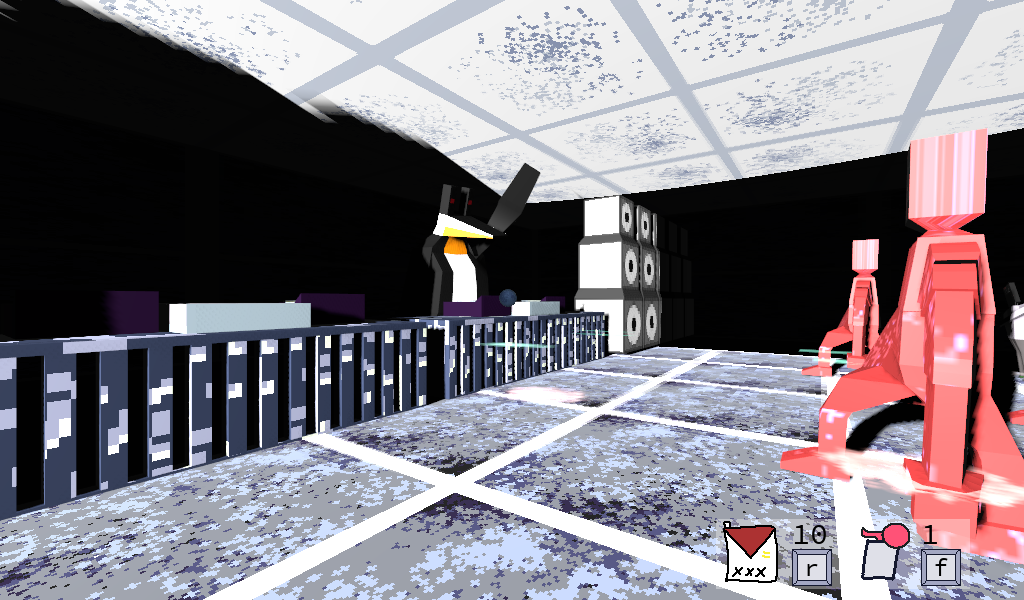I am pleased to present: Berlin Club Simulator!
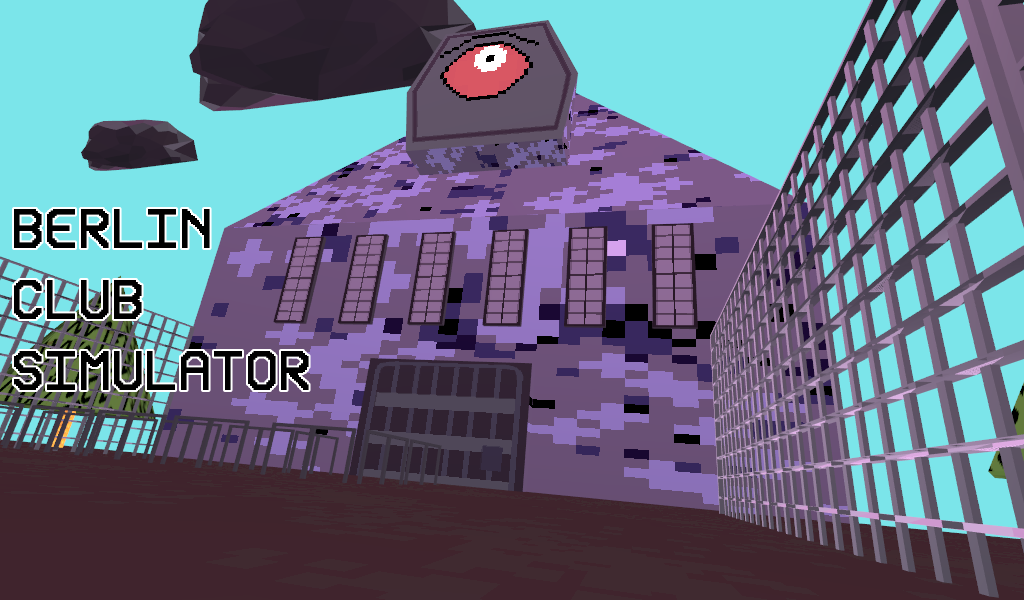
You can download the game on Itch.io here, or watch a full gameplay walkthrough on YouTube.
This was something of a pandemic project, and took me about a year of sporadic, on-and-off development. I had never made a computer game before, so every aspect of creating this was something I had to learn for the first time, which in the end was the wonderful point.
Berlin Club Simulator started as a series of sketches in Godot where I messed around with the basics of game dev and 3D modeling. It morphed into something slightly bigger than that, a roughly 10 minute adventure game. The game itself is short and silly and doesn’t have much of a true “game” in there, but I’m still very proud of what I’ve built here just the same.
Tech Werk
Berlin Club Simulator was developed in the wonderful Godot Engine. I haven’t used Unity or Unreal or any of the other major game engines so I can’t compare them, but I absolutely love Godot as both an engine and an open source project. Once I grokked the Godot workflow and method of doing things I found myself able to realize most of my ideas without much trouble at all. The Godot community is also very friendly and welcoming and I was generally able to find a helpful answer whenever I couldn’t figure something out.
I created all the 3D models in the similarly wonderful Blender, and used Asesprite for textures. In general my workflows were very basic, just a few simple textures on simple models, and animation exported directly from Blender to Godot. Video tutorials from Savvy Barbarian on YouTube helped me get the workflow and asset production flow from Blender to Godot working.
Next Time
My main goal here was to get a feel for game development in general, and in that sense I think it was a tremendous success. I learned enough to build a game from scratch, and more importantly, a lot of ideas on how to do things better next time:
Remember To Put An Actual Game In There
This game is not challenging at all, and the gameplay is limited to walking around and interacting with things. It’s more like a walk in the park, and while there’s nothing wrong with that, for my next game I’m going to focus much more on the actual gameplay. I’d like to come up with something fun but legitimately challenging, along the lines of FTL, Papers, Please, or Slay the Spire.
Have A Plan
Berlin Club Sim started as a series of trials and sketches that I tied together into something resembling a game. As such, I didn’t plan anything from the beginning. I had no idea of the systems I’d need, the layout of any level, or any sense of the game’s flow. All of this uncertainty meant a lot of hacking, trial and error, and throwing out things that didn’t work so well.
For next time I’d like to have most of the game designed in advance, before any serious coding or production starts. The development of this game meandered a bit since the most important feature was whatever I thought was funniest at the time, but as far as creating a cohesive and meaningful game I think I’d benefit from sitting down and sketching the whole thing out prior to starting work.
Sketch Everything In Advance
Related to the two previous points, next time I’ll make a proof of concept for every single aspect of the game, and especially the core gameplay loop, before fully committing to anything. Godot is flexible enough to let me sketch out a given gameplay concept in a few hours. It would be default cubes and basic meshes, but it would help validate if a given idea or concept was actually fun (or within my technical abilities) without a great deal of time invested.
Random Screenshots
